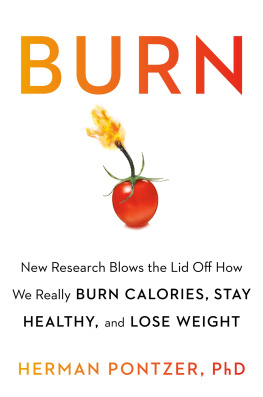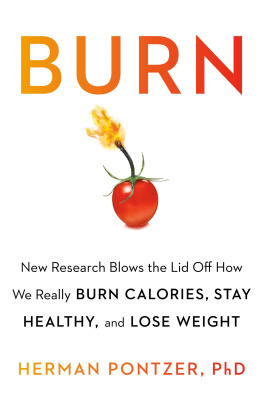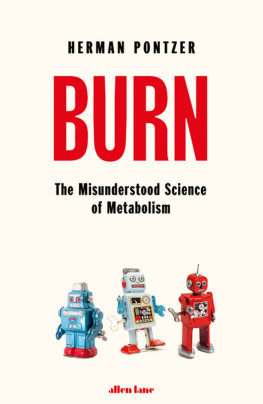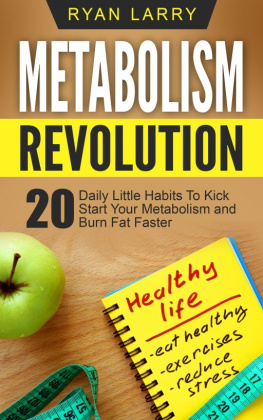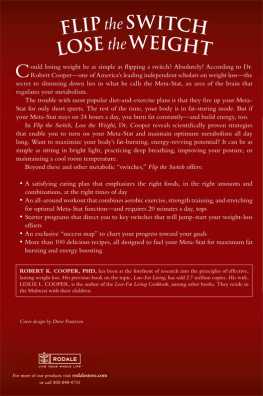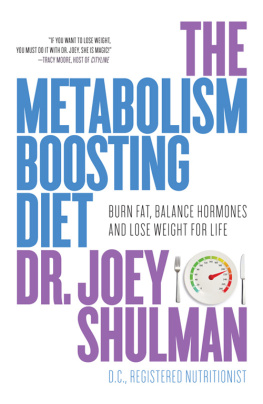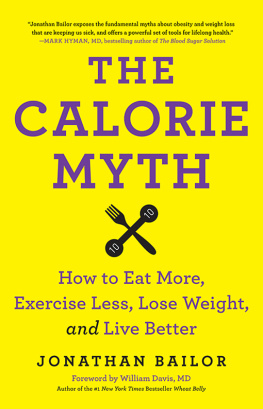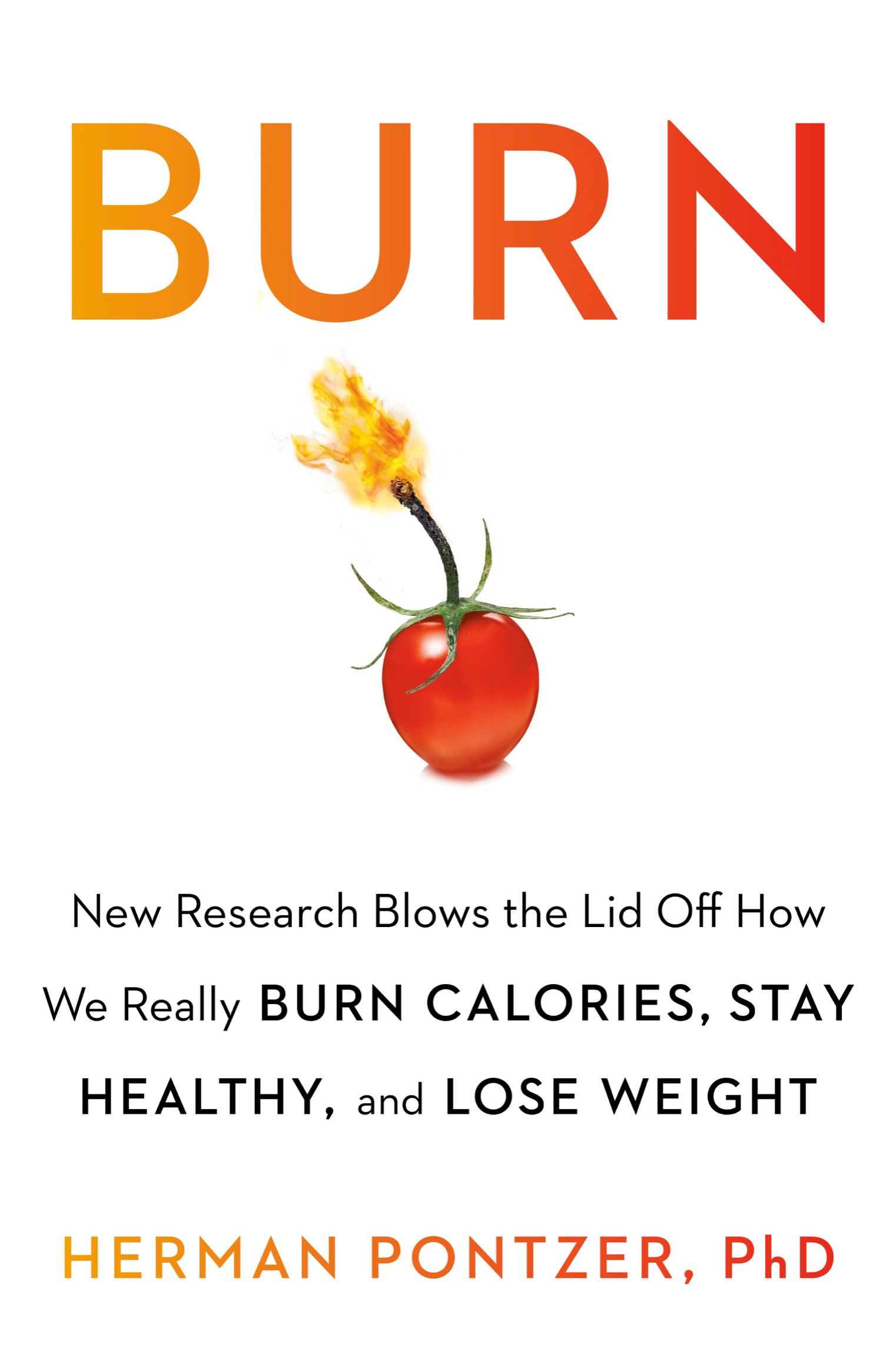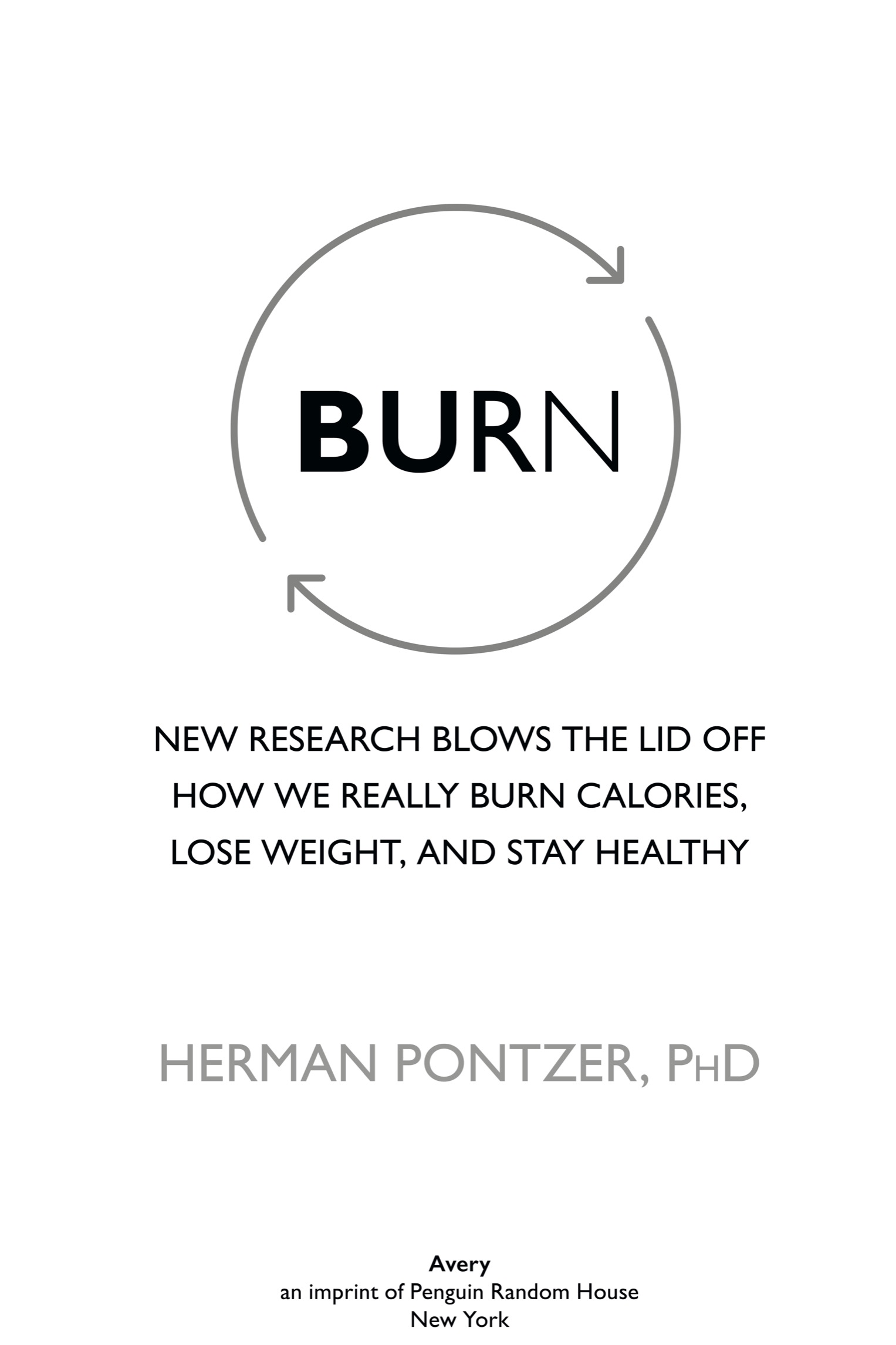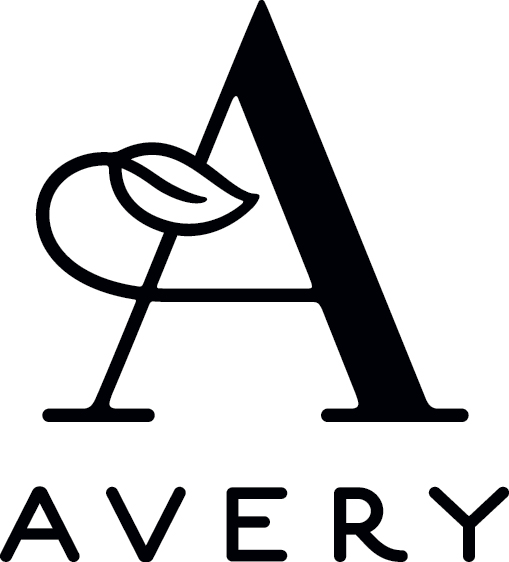
An imprint of Penguin Random House LLC
penguinrandomhouse.com
Copyright 2021 by Herman Pontzer
Penguin supports copyright. Copyright fuels creativity, encourages diverse voices, promotes free speech, and creates a vibrant culture. Thank you for buying an authorized edition of this book and for complying with copyright laws by not reproducing, scanning, or distributing any part of it in any form without permission. You are supporting writers and allowing Penguin to continue to publish books for every reader.
Photographs copyright Herman Pontzer
Library of Congress Cataloging-in-Publication Data
Names: Pontzer, Herman, author.
Title: Burn : new research blows the lid off how we really burn calories, lose weight, and stay healthy / by Herman Pontzer, PhD.
Description: New York : Avery, an imprint of Penguin Random House, [2021] | Includes index.
Identifiers: LCCN 2020020103 (print) | LCCN 2020020104 (ebook) | ISBN 9780525541523 (hardcover) | ISBN 9780525541530 (ebook)
Subjects: LCSH: Metabolism. | Weight loss. | Human evolution.
Classification: LCC QP171 .P66 2021 (print) | LCC QP171 (ebook) | DDC 612.3/9dc23
LC record available at https://lccn.loc.gov/2020020103
LC ebook record available at https://lccn.loc.gov/2020020104
Neither the publisher nor the author is engaged in rendering professional advice or services to the individual reader. The ideas, procedures, and suggestions contained in this book are not intended as a substitute for consulting with your physician. All matters regarding your health require medical supervision. Neither the author nor the publisher shall be liable or responsible for any loss or damage allegedly arising from any information or suggestion in this book.
pid_prh_5.6.1_c0_r0
For Janice, Alex, and Clara
CONTENTS
CHAPTER 1
The Invisible Hand
The lions woke me up around two in the morning. The sound wasnt loud so much as biglike the moaning hydraulics of a garbage truck interrupted by the coughs and grunts of an idling Harley-Davidson. My first hazy, sleepy reaction was a kind of grateful joy. Ah, the sounds of wild Africa! I stared up through the gossamer mesh roof of my tent at the stars overhead, felt the night breeze pushing through the dry grass and thorny acacia trees and up against the tents thin nylon walls, carrying the lions chorus. I felt fortunate to be there, camped in my little tent in the middle of the vast East African savanna, a place so remote and untrammeled that there were lions just a few hundred yards off. How lucky was I?
Then a pang of adrenaline and fear. This wasnt a zoo or some tourist safari. Those lions werent pretty pictures in a National Geographic magazine or a PBS nature show. This was real life. A gang of heavily muscled 300-pound feline killing machines was a short stroll away, and they sounded... anxious. Maybe even... hungry? Of course they could smell me. After days of camping I could smell myself. What was my plan when they came for my soft American carcass, the warm triple crme brie of human flesh? I wondered how close theyd get before I heard them in the tall grass, or if the end would come unannounced, an explosion of claws and hot angry teeth crashing through walls of the tent.
I kept thinking it through, trying to be rational. Judging by where the sound was coming from, the lions would have to walk past Daves and Brians tents first. I was Door Number 3 in this particular game of chance. That meant 1 in 3 odds of being eaten by lions tonight, or, if one was a glass-two-thirds-full kind of person, a 67 percent chance of not being eaten. That was a comforting thought. Plus, we were with the Hadza, on the outskirts of their camp, and nobody messes with the Hadza. Sure, hyenas and leopards would occasionally slink past their grass huts at night looking for scraps or unattended babies, but the lions seemed to keep their distance.
The fear began to dissipate. Drowsiness seeped back in. Id probably be fine. Besides, if one had to be eaten by lions, it seemed preferable to be asleep at the time, at least until the last possible moment. I fluffed up the pile of dirty clothes I was using for a pillow, adjusted my sleeping pad, and went back to sleep.
It was my first summer working with the Hadza, a generous, resourceful, and badass people who live in small camps scattered about the rugged, semiarid savanna around Lake Eyasi in northern Tanzania. Anthropologists and human biologists like me like to work with the Hadza because of how they make their living. The Hadza are hunter-gatherers: they have no agriculture, no domesticated animals, no machines or guns or electricity. Each day they wrest their food from the wild landscape around them, using nothing but their own hard work and guile. Women gather berries or dig wild tubers from the rocky soil with stout pointed sticks, often with a child on their back in a sling. Men hunt zebra, giraffe, antelope, and other animals, with powerful bows and arrows they fashion themselves from branches and sinew, or chop open trees with small axes to extract wild honey from beehives built in the hollows of limbs and trunks. Kids run and play around the grass huts of camp or head out in groups to get firewood and water. Elders either head out foraging with the other adults (they are remarkably spry even into their seventies) or stay back at camp to keep an eye on things.
This way of life was the norm worldwide for over two million years, from the evolutionary dawn of our genus, Homo, through the invention of farming just twelve thousand years ago. As farming spread and brought towns, urbanization, and eventually industrialization in its wake, most cultures traded in their bows and digging sticks for crops and brick houses. Some, like the Hadza, held on proudly to their traditions even as the world around them changed and began to encroach. Today, these few populations are the last living windows into humanitys shared hunter-gatherer past.
Along with my good friends and fellow researchers Dave Raichlen and Brian Wood and our research assistant, Fides, I was in Hadzaland (as we casually refer to their homeland) in northern Tanzania to learn how the Hadza lifestyle is reflected in their metabolismthe way their bodies burn energy. Its a simple but incredibly important question. Everything our bodies dogrowing, moving, healing, reproducingrequires energy, and so understanding how our energy is spent is the first foundational step in understanding how our bodies work. We wanted to know how the human body functions in a hunting and gathering society like the Hadza, where people were still an integral part of a functioning ecosystem, with a lifestyle still similar in important ways to that of our deep past. No one had ever measured daily energy expenditure, the total number of calories burned per day, in a hunter-gatherer population. We were eager to be the first.
In the modernized world, far removed from the daily work of acquiring our food with our bare hands, we pay little attention to energy expenditure. If we think about it at all, we think of the latest diet, our workout plan, whether weve earned that donut we crave. Calories are a hobby, a nugget of data on our smartwatches. The Hadza know better. They understand intuitively that food and the energy it holds are the fundamental stuff of life. Each day they confront an ancient and unforgiving arithmetic: acquire more energy than you burn or go hungry.

